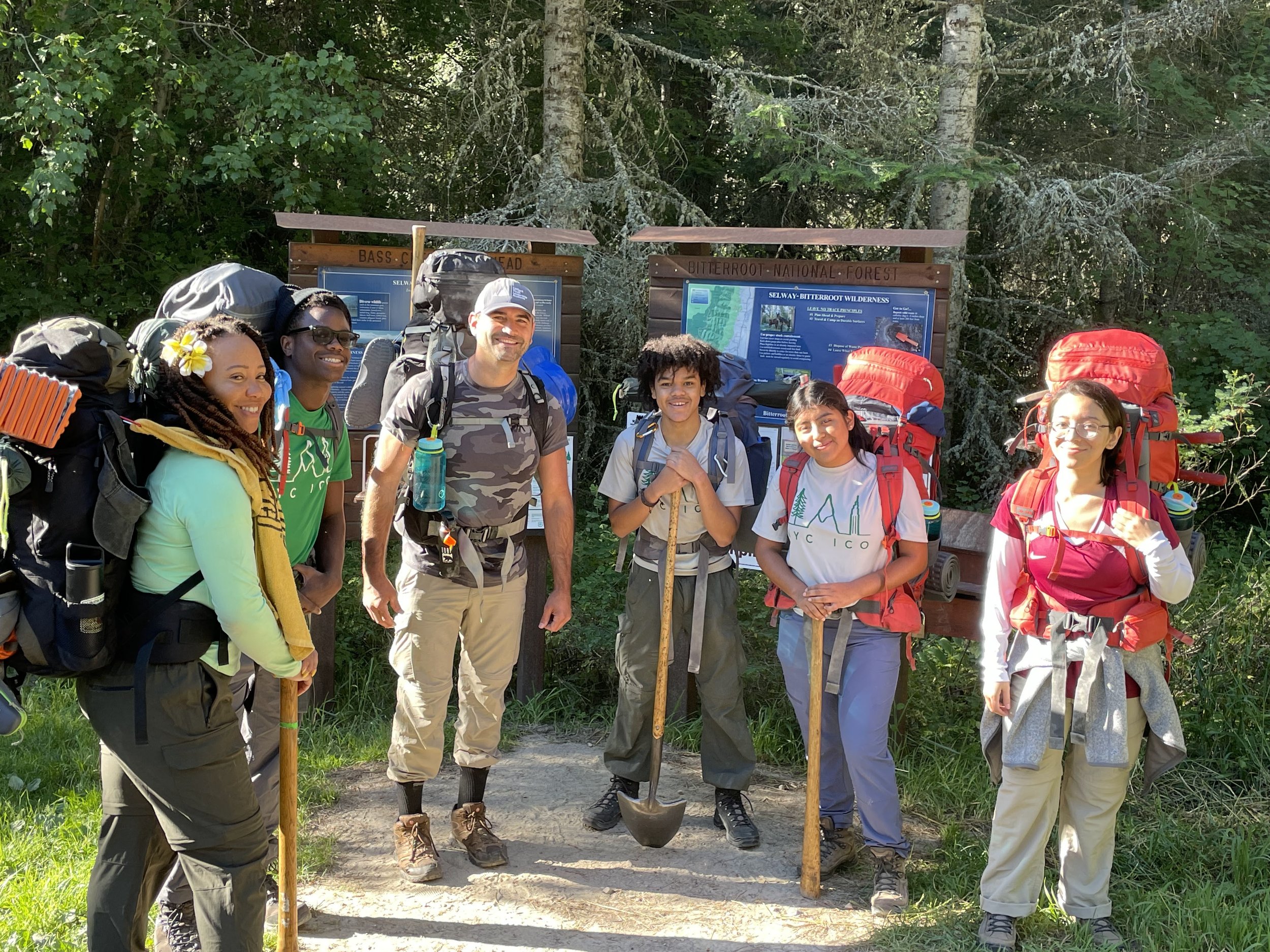Frequently Asked Questions
Wilderness trail projects are challenging and require dedication and a passion for preserving our natural landscapes. By joining a volunteer project, you become an integral part of a team committed to enhancing the quality and safety of our public lands. This collaborative effort not only strengthens bonds between team members but also fosters a shared sense of purpose and achievement.
Your hard work has a lasting impact, not just on the trails we maintain, but also on the experiences of countless visitors who seek solace and adventure in the great outdoors.
Join us in our volunteer trail projects, and together we can ensure that our beloved public lands remain beautiful, accessible, and well-maintained for everyone to enjoy. Keep reading to learn more!
-
Safety is our highest priority on all volunteer projects. Before any work begins, volunteers will receive training on the proper use of tools and ergonomics to prevent injuries while performing trail work. Each day starts with a safety briefing, which covers correct use of personal protective equipment (PPE), backcountry safety practices, and proper tool handling.
SBFC crew leaders also ensure safety by checking in twice a day via satellite InReach with SBFC staff and/or USFS dispatch. They maintain regular communication to stay updated on potential hazards, including weather changes or fire risks.
Each leader is certified in Wilderness First Aid or higher and is equipped with a well-stocked first aid kit. A Garmin inReach device or Forest Service radio is used for communication in case of an emergency.
-
Food arrangements depend on the project location and logistics, and meals are handled in one of three ways:
Self-supported Backpacking Trips: Volunteers are asked to bring their own food, stoves, and fuel. On request, we can usually reimburse volunteers for their meal expenses for these trips.
Most Backcountry Projects: For these projects, the SBFC Volunteer Program Director and Volunteer Crew Leader will work together to plan a menu and handle all the shopping. You will be contacted 2-3 weeks before the trip to confirm any food allergies, dietary restrictions, or other important considerations. If there are specific food or drink items you can't live without, feel free to bring them along!
Select Projects with a Volunteer Camp Cook: On a few projects each season, we’re fortunate to have a dedicated volunteer camp cook who plans the menu, does the shopping, and prepares meals in the field.
-
Each volunteer is responsible for getting to the trailhead or meeting site as outlined in the project description. For some locations, we recommend driving a high-clearance or 4WD vehicle. It’s also a good idea to have a spare tire with you.
-
Our projects take place in remote locations with limited cell service, and there are factors such as rough road conditions, creek crossings, and inclement weather to consider. For these reasons, we prefer that volunteers commit to staying for the entire duration of a multi-day project. If you are unable to stay for the full project and would like to discuss your situation, please contact us at volunteer@selwaybitterroot.org.
-
Yes! Volunteers will have free time at the end of each workday to hike, fish, swim, relax, or enjoy the backcountry. For longer projects, there may also be a designated day off during which volunteers can enjoy the backcountry for the entire day.
-
Unfortunately, pets are not allowed on volunteer projects. Even if you’re confident in your pet’s behavior, conflicts can still arise. Our primary concern is the safety of your pet, pack stock, wildlife, and fellow volunteers.
Other questions? Contact volunteer@selwaybitterroot.org
Volunteer Paperwork
Access volunteer agreement forms and reimbursement forms for all of our volunteer programs in the link below.

![IMG_7942[1].jpg](https://images.squarespace-cdn.com/content/v1/559d365ae4b0233f52969762/1732662979534-6U1TH7A2RQMM23EXP0N4/IMG_7942%5B1%5D.jpg)




